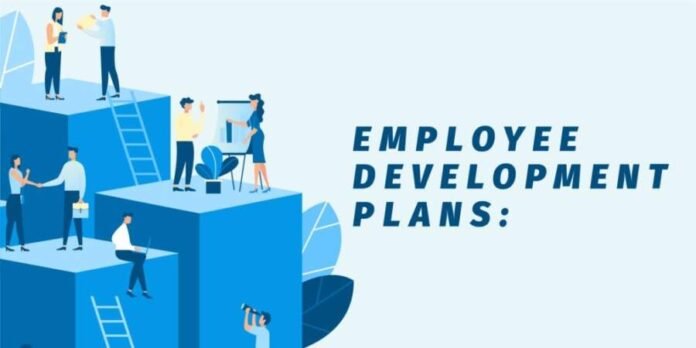Managers play a crucial role in the development of their employees. Employee development plans are an essential tool for managers to help their employees grow and advance in their careers. These plans outline the skills and knowledge that employees need to acquire to meet their career goals and help the organization achieve its objectives.
To create an effective employee development plan, managers must first assess the skills and competencies of their employees. They should identify the areas where their employees need to improve and provide the necessary training and resources to help them achieve their goals. Managers should also work closely with their employees to ensure that the development plans align with their career aspirations and personal interests.
The role of managers in employee development plans is critical to the success of the organization. By investing in their employees’ growth and development, managers can create a more engaged and motivated workforce. This, in turn, can lead to increased productivity, higher job satisfaction, and reduced turnover rates.
Understanding the Importance of Employee Development Plans
Employee development plans are essential tools that help organizations retain their top talent, increase productivity, and ensure employee satisfaction. In today’s competitive job market, employees are looking for opportunities to grow and develop their skills, and employee development plans provide them with the means to do so.
By investing in employee development plans, companies can retain their top talent and reduce turnover. The Great Resignation of 2022 saw a significant number of employees leaving their jobs, and companies that did not invest in employee development plans were hit the hardest. By providing employees with opportunities for growth and development, companies can increase employee satisfaction and reduce turnover.
Employee development plans also increase productivity. Employees who receive training and development opportunities are more engaged and motivated, leading to increased productivity and better performance. In management and software development roles, high performers showcase an astonishing 800% surge in productivity.
To create effective employee development plans, managers must understand the needs and goals of their employees. By providing employees with the resources and support they need to achieve their goals, managers can help them grow and develop their skills. Managers can also play a crucial role in training and development by providing employees with feedback and coaching.
The Role of Managers in Employee Development Plans
Managers play a crucial role in the development of their employees. They are responsible for identifying the strengths and weaknesses of their team members, and creating a plan to help them grow and develop in their roles. The success of an employee development plan relies heavily on the involvement and guidance of managers.
One of the primary roles of a manager in employee development is to act as a mentor. Managers should provide guidance and coaching to their team members, helping them to identify areas where they can improve and providing them with the resources they need to succeed. This can include training sessions, workshops, and one-on-one meetings to discuss progress and set goals.
In addition to providing guidance, managers should also create a supportive environment that encourages growth and development. This means creating opportunities for employees to take on new challenges and responsibilities, and recognizing and rewarding their accomplishments.
Effective employee development plans also require the active participation of managers. Managers should be involved in every step of the process, from identifying areas for improvement to monitoring progress and making adjustments as needed. They should also be open to feedback from their team members, and willing to make changes to the plan based on their input.
Conclusion
Managers are pivotal in nurturing employee growth by identifying their strengths and weaknesses, devising development plans, and providing resources for their betterment. As self-development is the starting point for managers, they need to set clear goals and objectives before mentoring their team.
Creating a conducive environment for learning through training sessions, workshops, or informal discussions is crucial, as is assigning specific roles to employees during training to foster active engagement. Managers need to monitor employee progress, provide feedback, and make necessary amendments to the development plan.
They should also be receptive to employee suggestions and feedback. With proper planning and follow-through, managers can use employee development plans as a strategic tool to build a skilled and motivated workforce, thereby contributing to organizational growth.
Read Also: What Is the Importance of a Real Estate Property Manager?



































































